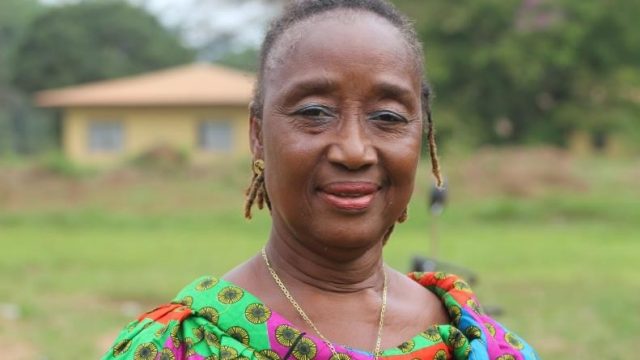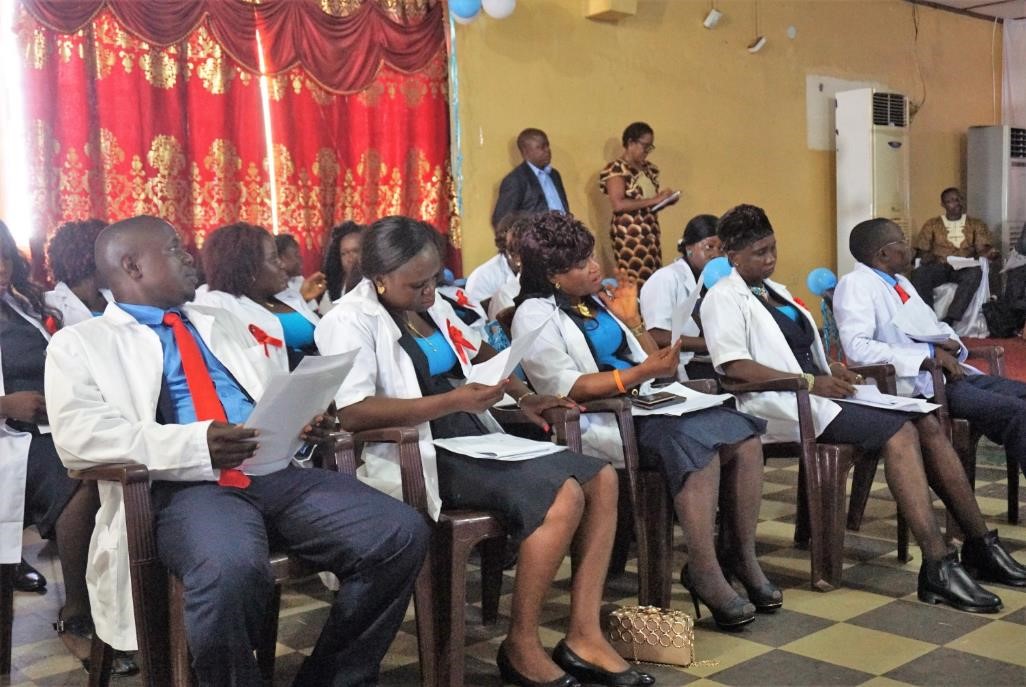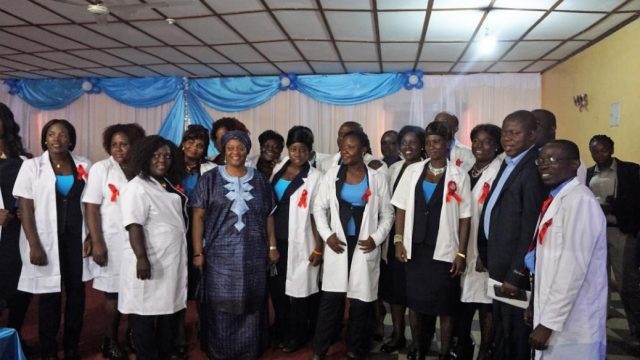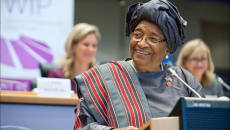KAKATA, Margibi – Mental health stakeholders have been intensifying their efforts to train qualified professionals to provide better mental health care to Liberians across the country.
In 2016, the World Health Organization noted that 1 in 5 Liberians suffered from a mild to moderate mental disorder. At that time, Liberian had only one registered psychiatrist, and most health workers had little or no knowledge of mental illnesses.
However, since then, several organizations have been making an impact by training clinicians and other health professionals to be knowledgeable in providing quality services to Liberians around the country.
On March 30 in Kakata, 19 mental health clinicians graduated from a six-month training specializing in child and adolescent mental health.
The program was funded by the Japanese Social Development Fund, a trust fund administered by the World Bank. The Carter Center Mental Health Program administered the training, in collaboration with the Ministry of Health, the Ministry of Education, and the Ministry of Gender, Children, and Social Protection.
Vice President Jewel Howard-Taylor, who served as guest speaker, noted that Liberia needs more mental health clinicians to be trained and deployed across the country.
She challenged the graduating students: “Those who have acquired the skills should be committed to serving persons with mental illness and help communities to end any form of stigmatization against them.â€
She said the presence of the newly trained workers would foster and sustain the advocacy against discrimination, stigmatization, and provide adequate health care for people living with mental illness across the country.
Howard-Taylor said it was important to deploy at least one mental health clinician at every health center across the country, as Liberia’s numerous years of increased stress has contributed to a prevalence of mental illnesses and disorders in the country.
She explained that many of the mental health problems confronting Liberians could be avoided if trained mental health clinicians were available at health facilities and adequately supported to provide needed services across the country.
The vice president congratulated the newly trained clinicians and encouraged them to practice in accordance with their professional ethics and without any form of discrimination or stigmatization.
The child and adolescent post-basic mental health training program is part of a three-year initiative to address the psychological effects of Liberia’s Ebola crisis and to promote psychological health in the country.
Prior to the child and adolescent training, the Carter Center had also conducted a weeklong training in Ganta for several deans and instructors from various educational institutions to scale up services for mental, neurological and substance use disorders.
Participants at the weeklong training were drawn from Lofa, Nimba, Bomi, Montserrado, Grand Gedeh, Grand Bassa, Maryland, and Sinoe.
Dr. Janice Cooper, head of the Carter Center Mental Health Program in Liberia, told participants that the training would ensure that students graduating from nursing institutions in the country were equipped with the basic skills and knowledge.
“We are taking another step forward in the area of mental health,†she said.
Anna Doe Smallwood, the director of the midwifery training program in the southeastern region, who was invited to the training by the Liberia Board of Nursing and Midwifery, said mothers often suffer from psychiatric issues while giving birth and psychiatric nursing is an important part of the midwifery training program curriculum.
“I hope to impart the knowledge acquired from the training to my students,†she added.

Anna Doe Smallwood, director of the Midwifery Training Program in southeastern Liberia. Photo: Zeze Ballah
Also present at the training was the chair of Tubman University’s Department of Public Health, Mulbah Massaquoi Tokpah. He described the training as necessary because it allowed deans and instructors of mental health programs to acquire additional knowledge to boost their students’ capacities.
In early February, 20 other participants drawn from across the country also participated in a 10-day universal treatment training course that prepares mental health clinicians to offer treatment to individuals with addiction problems.
Dr. Mariam Cue, an addiction specialist at the Colombo Plan Drug Advisory Program, served as the lead facilitator for that training. Because Liberia currently has no specialized addiction treatment center that offers evidence-based treatment for persons with substance abuse disorders, the training was important to ensure that clinicians across the country could better understand these issues.
Mental health stakeholders hope that the series of training will help to make a dent in the significant mental health challenges facing the country.
Featured photo by Zeze Ballah




